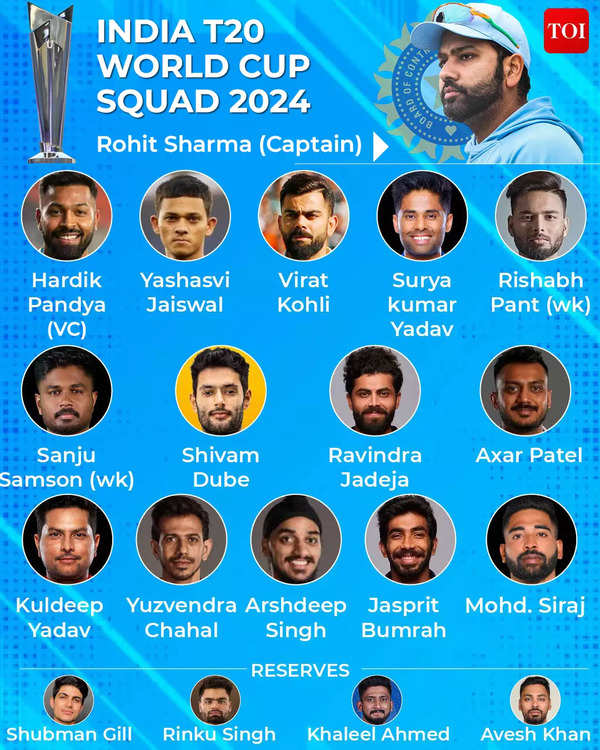“…they have changed the combination because then Dube and Axar wouldn’t have got the opportunity to play, so they have made this combination for a correct composition where Axar is batting at no.8, especially in this pitch where bowlers have an advantage,” he said.
T20 WORLD CUP: SCHEDULE | POINTS TABLE
“If the tournament would have opened in West Indies, then we would have seen Rohit and Yashasvi opening the match, there you wouldn’t have needed the sixth or the seventh bowler.
“You can’t expect 200 runs in this pitch, 130 or 140 runs would be good, and this combination will work.”
In T20 cricket, Sidhu feels that the term “game-changer” should not be used carelessly because only players who can score at least two runs per ball are deserving of such a designation.
In addition to the low-scoring games of the ongoing T20 World Cup, strike rates were a major talking point during the Indian Premier League last month.
“See, game changers are those who will score 2 runs in a ball,” Sidhu said on ‘Star Sports Press Room’.
“You are talking about strike rates, 1.5, 1.7, but there are some people who are scoring 2.5 runs, three runs per ball. There are some people who in the end will come and score in 10 balls, a 35. Now that is the quality,” he pointed out.
“That’s 35 in ten balls, if two people score and support someone like Virat Kohli, is a game changer. Make no mistake about it,” he added.
Shivam Dube and Axar Patel, two current Indian players, have what it takes to be game-changers, according to Sidhu.
“…you look at the IPL and you look at the T20 format, those who can actually score a 2.5 per ball or above two per ball are the real game changers. There are so many of them.
“There is Ravindra Jadeja, there is Dube, and even Axar also scores the runs in the same pace. Why is (MS) Dhoni such a great finisher, because his strike rate is 2.5, his strike rate at times is 4 per ball.
“That is the real game changing effect in the game of cricket in T-20. It’s a different skill altogether, the skill to clear the ground.”

(With PTI inputs)
